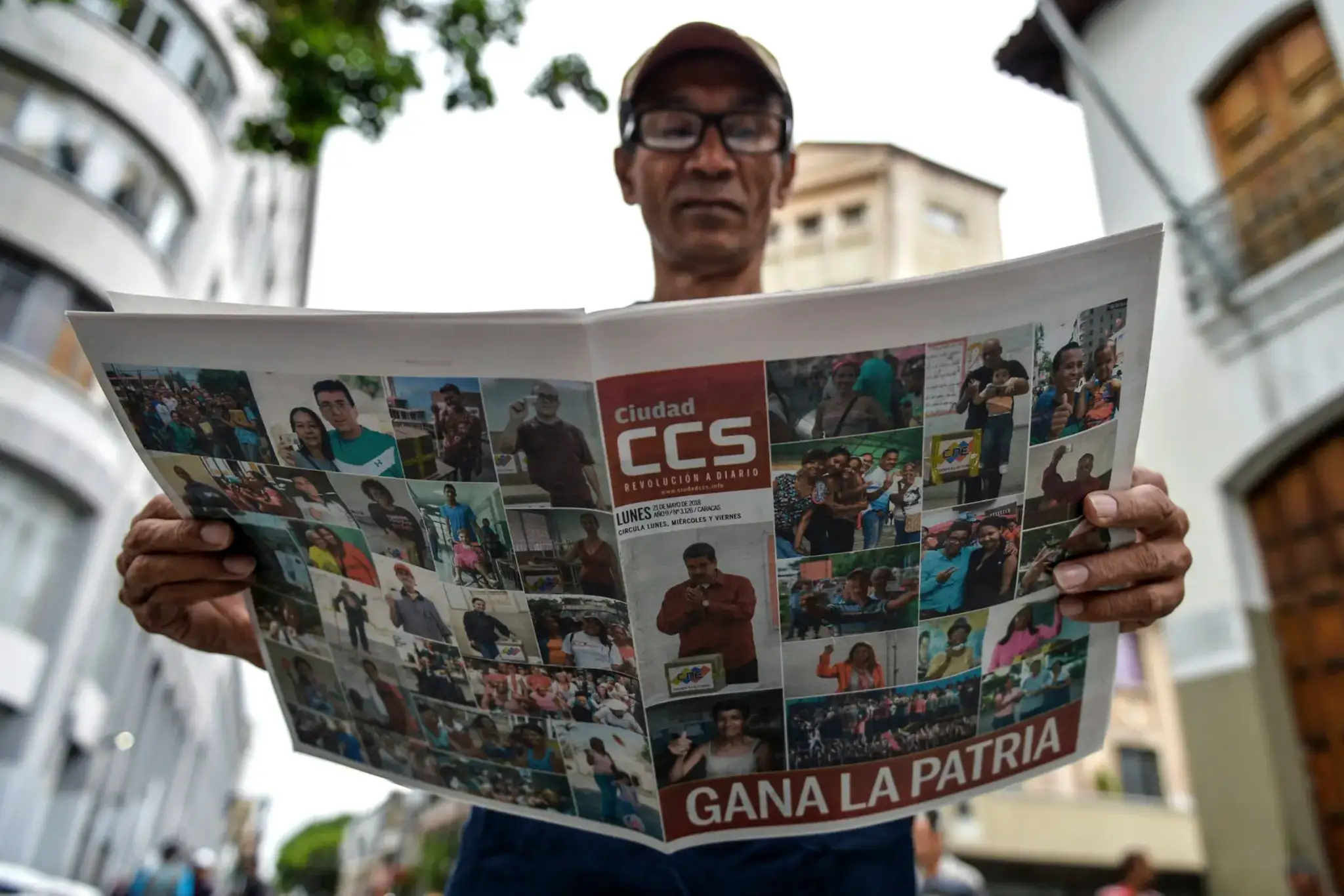The government of Nicolás Maduro has already begun to take measures to prevent the free expression of the popular will through the vote in the presidential elections of 2024. For this, the government has put into practice actions that have been used in past electoral processes and which, at the time, were successful.
Recently, Chavism articulated the early resignation of members of the National Electoral Council (CNE). These authorities were appointed as a result of negotiations with a sector of the opposition and civil society, with the clear objective of further undermining confidence in the body, delaying the announcement of the electoral schedule and not providing technical assistance to the opposition for the organization of the primary elections. Some government spokespersons have even mentioned the possibility of anticipating the elections.
Chavism is also using actors who respond to its hegemonic interests, to take judicial actions against the CNE, through measures such as the filing of an appeal before the Supreme Court of Justice (TSJ) to challenge a process that has not even taken place.
The dispersion of the opposition vote continues to be part of the strategy of Chavism concerning 2024. This time, in addition to the instrumentalization of political parties, as in previous years, and of actors disloyal to democracy to recreate a false environment of political plurality, the announcement of Benjamin Rausseo, a famous comedian in Venezuela, to participate in the primary elections and his sudden decision to withdraw from the process to run in 2024 as an independent candidate stand out.
Last week, the disqualification for 15 years of María Corina Machado was announced without a judicial sentence ordering that end. The decision on Machado was expected, and she is one more among those candidates competing to lead the opposition in 2024.
The disqualification of María Corina Machado, when everything seems to indicate that she will sweep the October primaries and consolidate herself as the main opposition leader, was necessary to achieve the Government’s objectives. Maduro knows that he cannot win in a process with minimal conditions and much less against a popular and competitive candidate.
Machado’s firmness against the abuses of Chavism in the past leads us to believe that, if she is not qualified to participate or if she identifies that the unfair conditions of the process make it difficult to reverse the fraud, she could call for abstention in 2024 in order to preserve her political capital.
Thus, Chavism’s plans could end up not going as expected. Unlike previous years, this time the opposition seems to be clearer about the importance of participating in the presidential elections. The lack of alternatives to make political change viable has also caused a moderation of their demands in the spaces of dialogue or negotiation with Chavism. An important part of the politicians and organizations participating in the primary election has made it clear that next year’s election will not be a common event. They call for prioritizing the unification of the opposition forces over Maduro.
Although the stakes were not as high as what will be disputed in 2024, the experience of the 2021 Barinas gubernatorial election demonstrated to the opposition how participation in elections, even under unfair conditions, is capable of stirring the determination of citizens and changing the attempts of the authoritarian regime to disregard the results.
Machado’s disqualification has also provoked the rejection and solidarity of a large part of society, apart from having contributed to catapulting her into public opinion inside and outside the country. Her candidacy has been showing an unprecedented mobilization capacity in a context characterized by the hopelessness of the population and the authoritarian consolidation of Maduro.
In addition to filling streets and squares, the candidate of Vente Venezuela is promoting a new liberal narrative for the country that goes in the opposite direction to the corollary of ideas cultivated by Chavism throughout decades and that people relate to the causes of the economic, social and institutional collapse of Venezuela.
This time, the abuses of the regime could be insufficient to prevent the opposition from channeling society’s desire for change. María Corina Machado and the other opposition leaders such as Henrique Capriles, Juan Guaidó, and Freddy Superlano may be prevented from participating, but they can mobilize a large part of Venezuelans to vote for a unitary candidate.
The hope generated by the opposition forces’ reorganization in view of 2024 cannot cloud our judgment. Maduro and his collaborators have made it clear that they have no will to re-democratize the country and each new decision is part of a plan to get reelected at the lowest possible cost.
Chavism has the advantage of arbitrarily exercising institutional control of the country, among many other resources. In the last few years, Maduro has shown that he is willing to carry out his struggle to retain power to the last consequences. And he could even appeal to create an electoral scenario similar to that of Nicaragua or simply postpone the elections.
Faced with this challenge, the democratic forces have the option of taking advantage of the opportunities opened up by the renewal of the leadership through the primaries, in order to work on the organization of the country’s living forces. And, once again give hope to society with the possibility of living in a better Venezuela if they vote to defeat authoritarianism in 2024.
*Translated from Spanish by Janaína Ruviaro da Silva











